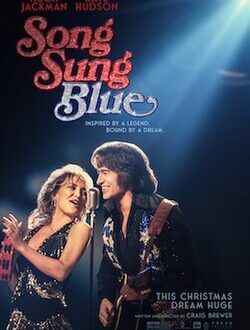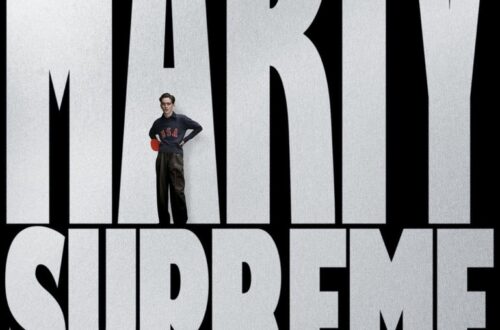Dwayne Johnson’s story has always been about scale. Everything he has touched in his career has carried a sense of larger-than-life momentum, from his days as “The Rock” in professional wrestling to his rise as one of Hollywood’s most bankable stars. What sets him apart is not only his physical stature, which is formidable, but also his instinct for reinvention. He is that rare figure who has crossed industries, genres, and even generations, always managing to hold the spotlight while evolving into something new.
Born in 1972, Johnson inherited the performance legacy of a wrestling family. His father, Rocky Johnson, and his grandfather, Peter Maivia, were both respected in the wrestling world, and from them he absorbed both the athleticism and the storytelling instinct required to succeed in the squared circle. Yet his early years were not golden. As a teenager, Johnson faced economic struggles, brushes with the law, and a period of self-doubt. It was football that first offered him a way forward. A defensive lineman at the University of Miami, he was part of a powerhouse team, but injuries cut short his NFL dreams. For many, that would have been the end of the story. For Johnson, it was the pivot point.
Wrestling became his second act, and what an act it was. Entering the WWE in the mid-1990s, Johnson initially struggled to connect with audiences, but he soon found his voice as “The Rock.” The character was cocky, witty, and flamboyant, hurling catchphrases with such flair that they became part of pop culture lexicon. He called himself “the most electrifying man in sports entertainment,” and remarkably, he was. Millions watched him each week, and he transformed professional wrestling into mainstream entertainment with a charisma that rivaled Hulk Hogan’s at his peak.
By the early 2000s, Johnson had grown restless with wrestling alone. Hollywood beckoned, and he made the leap with a mix of action and comedy roles that leaned heavily into his physicality. Films like The Scorpion King and The Rundown established him as an action star, but Johnson wasn’t satisfied to stay in one lane. He worked steadily, choosing roles that showcased humor and family appeal, eventually anchoring the Fast & Furious franchise, starring in adventure spectacles like Jumanji: Welcome to the Jungle, and even lending his voice to Disney’s Moana. Each role expanded his audience. By the mid-2010s, he wasn’t just one of Hollywood’s leading men—he was a global phenomenon, regularly topping lists of the world’s highest-paid actors.
But what makes Johnson unique is the way he has broadened his empire beyond the screen. He founded Seven Bucks Productions, named after the amount of money he once had left in his pocket, which has produced films and television shows across genres. He entered the business world with his Teremana Tequila line, which quickly became a best-seller, and with Project Rock, a partnership with Under Armour that reflects his relentless fitness ethos. In each venture, Johnson has projected the same image: a man who blends ambition with accessibility, grit with gratitude.
His social media presence has only amplified his reach. With hundreds of millions of followers, Johnson has cultivated a digital persona that is equal parts motivational coach, behind-the-scenes celebrity, and devoted father. He often speaks candidly about his struggles with depression, his commitment to family, and the daily discipline that fuels his success. These glimpses of vulnerability have endeared him to fans who see him not only as a superstar but also as a man who has weathered setbacks and kept going.
Recently, Johnson has taken steps to expand his range as an actor. While audiences know him for big-budget blockbusters, he surprised critics with his performance in The Smashing Machine, where he portrays MMA legend Mark Kerr. It is a gritty, unvarnished role that strips away the glossy action-hero exterior and asks Johnson to dig into emotional vulnerability. Early reviews from the Venice Film Festival suggest that it may mark a new chapter in his career, one that could even land him in the thick of awards-season conversations.
Beyond acting, Johnson has flirted with politics, joking in interviews about a presidential run. While it may never happen, the speculation itself underscores how deeply he has embedded himself into the public imagination. He is not only an entertainer but also a figure people look to as a kind of cultural compass, someone whose life embodies ambition, resilience, and the promise of second chances.
At 52, Johnson shows no signs of slowing down. He continues to juggle acting, producing, business ventures, and philanthropic work, all while keeping his brand tightly aligned with themes of perseverance and positivity. His journey, from a young man with seven dollars in his pocket to one of the most recognized figures on earth, has the arc of a modern myth. And yet, through all the scale and spectacle, Johnson remains anchored by something simple: the belief that hard work and authenticity can move mountains.
Dwayne Johnson is a star, but more than that, he is a story still in motion. His path has been about reinvention, resilience, and the refusal to accept limitations. Whether in the ring, on the big screen, or behind the camera, he has always found a way to connect. And perhaps that is his greatest strength of all: the ability to remain larger than life while still making people believe they can reach for something bigger themselves.



